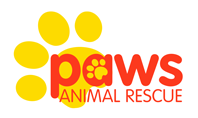How to avoid a Puppy farm
When you hear the term ‘puppy farm’ your mind automatically conjures up an image of a sunny, farm-land filled with bouncy puppies roaming around. Sadly, this image couldn’t be further from the truth. Puppy farms, Puppy mills and Commercial Breeders are all broad terms used to describe the unfortunately common practice of breeding puppies in their hundreds to sell to the general public for profit over the pup’s welfare.
In recent years, puppy farms have pushed their way to being the number one animal welfare issue in the country and, sadly, Ireland has the reputation as being the Puppy Farm capital of Europe with all manners of breeds of pups being bred in their thousands and sold nationally and/or smuggled to other European countries to be sold there. Puppy farmers will breed the puppies most in demand and popular at that time for profit, from Cocker Spaniels and Bichon Frises to cavachons, cockapoos and schnoodles. Puppy farmed pups are never health-checked before being sold and their parents are never screen-tested before being bred. This can result in all manners of health and behavioral problems arising in the puppies after they are sold including social problems, hip dysplasia, heart murmurs, ‘roach back’, breathing problems, spine deformities to name a few. These are the genetic issues that can arise in puppy farmed dogs but also, pups bred in a puppy farm environment can often be sold very sick, or have worms, fleas or other health issues picked up from living in a dirty environment, Often the new owners of puppy-farmed pups don’t know about their new family member’s health problems until they have them home or on their first vet visit, then when they try to phone the breeder, it’ll be a wrong number or disconnected.
On puppy farms, the ‘breeding bitches’ are housed in ‘whelping boxes,’ for their entire lives and used as breeding machines to churn out pups litter after litter. They never see daylight, go for walks or get cuddles and when they cannot produce puppies anymore they are usually ‘discarded’ without a second thought. Their pups are sold on while still cute and cuddly while the breeding dogs will be kept at the puppy farms their whole lives. Puppy farms are rife in Ireland and kept secret by puppy farmers who will keep doing what they are doing while there is profit to be made. It is a heart-breaking practice that must be stopped and the best way to do it is by raising awareness so people know what to look for to spot a puppy farmer and know when to walk away.
We will always recommend adopting a dog as opposed to buying as shelters such as PAWS are filled to the brim with homeless, abused and unwanted dogs, both crossbreed and purebred, of all ages and sizes looking for a second chance at finding a forever home after finding them selves in a shelter, often, through no fault of their own. If you are on the lookout for your next family pet, then we would always highly recommend checking in your local shelter or pound for your perfect dog first as you will never know what you will find. If you must buy then please read ahead at our guidelines on how to avoid a puppy farm at all costs.
Avoid websites selling dogs, and avoid looking in the buy and sell newspapers. A reputable, responsible breeder will not advertise their dogs in this manner. Contact the Irish Kennel Club, or IKC for short, and see if your chosen breed has an Irish Breed Club. If so, contact the Breed Club and they will point you in the right direction of an ethical breeder. If you do find yourself in contact with a breeder, then always insist on inspecting the breeder’s premises. A reputable breeder will be more than happy to have you come to view where the puppy is coming from. A puppy farmer will almost always offer to meet you halfway or in a carpark as they do not want you to see where the pups are housed. When you do go to see the Breeder’s premises, ensure that you see the mother, and puppies, and that they are in the house. Some breeders may have the dogs outside, which might not seem so bad, but this means they may not have been properly socialised. An ethical breeder will keep their puppies indoors to ensure the puppies are used to all sounds found in the home: the television, hoover, phone, and are used to people coming and going.
The mother dog should be in good condition, with bright eyes and she should be introduced to prospective new owners as well. She should not be underweight, despite a ‘breeder’ telling you the puppies will take it out of her; a good breeder will make sure the bitch has a constant supply of high-quality food to keep her healthy.
The puppies should be curious and excited to see new people, they should be plump, but not potbellied, they should be bright-eyed and their coats in good condition. There should be no dirt matting their fur. They should not have any marks, redness or loss of hair. The puppies should not cower away from you, should not stay huddled together. The puppies should be confident enough to investigate the stranger in their midst. If they aren’t, then its quite likely they haven’t been socialised.
Questions to ask the breeder:
- Health concerns of the breed. Nearly all breeds have some prevalent health problems, if the breeder claims that they have no health concerns at all, walk away.
- Temperament, personality of your chosen breed. A good breeder will be able to talk about their chosen breed for hours on end.
- How suitable they think you are to the breed. If they claim that the breed suits everyone, or they’re grand with everything, walk away. Every breed is different, it is simply impossible to compare a chihuahua to a collie etc.
- How long they have been interested in this breed and how many show titles do the bitch and dog have.
- How many puppies they have. If more than one litter at a time, walk away.
- If they have a waiting list. Most reputable breeders will have a long waiting list of people wanting their puppies. If they dont, best to wonder why not.
- If they are a member of their breeds Irish Club. Most reputable breeders will be members of their breeds club, clubs set up with in interest of their breeds welfare.
Remember, a good breeder will always welcome questions and be able to answer any question you may have.
Never buy a puppy because you feel sorry for him/her. You may think it is the right thing to do but, in fact, you are just helping to pay for further puppy farms and the puppy farmers will quickly replace a sold pup as soon as you buy it. The only way to try and stamp out puppy farms is to not give them the business they need to continue.
This is the only family member that you can choose, so make sure you do your very best to find the perfect, healthy puppy to bring into your home. If you come across a puppy farm, then make sure you report it to the Gardai.
As a nation of dog-lovers we must take a stand against these cruel practices and do our part to help put a stop to them. Please spread the word and help put a stop to puppy farms nationwide.
This article was inspired by one of our rescues and former puppy farm ‘breeding bitch,’ Jasmine the shih-tzu.






